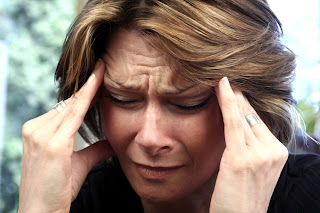Question:
After 6 years away studying, I came
back to my city and living in a bad moment of my life. My moods are
constantly changing, up and down, and I am nervous, and feels like my
wing has been clipped… My morals are extremely low… will I sink
into depression?
Answer:
Dear Manuela,
Having past 6 years away from the
city that you live certainly means the construction of a social
context in which you are comfortable in; the first of your young
adulthood, it is important and significant because of the people that
you’ve encounter as well as for the internal formations that took
place. Because of this, having left everything can have a feeling of
uprooting with a sense of emptiness and disorientation that can
explain your constant up and down mood swings. Also due to having
lost the strong anchor that you’ve had before and not having found
that yet, you can feel like a fluttering balloon that has no control
of where it goes and have the sensation that you’ve lost the right
equilibrium.
There’s also the need to
understand whether the environment that you’ve returned to is still
suitable for you and how much you’ve grown in this 6 years
somewhere else. Maybe you expected to come back and find everything
how you’ve left them but instead they’ve changed, and the reason
not being other than you’ve changed and you see things differently
than you otherwise would. It can also be the disappointment that
follows when you exit from childhood, when you have responsibilities,
after studying, to compose yourself like an adult like looking for a
job. And if you already have one, it would be the responsibility of
having to work and make a plan for your life that is not based on
dreams and desires. At this time, you are face with the limitations
of reality and at the same time need to be open for possibilities
because resources can present themselves at unexpected times and you
need to realize it when it happens. Do not ever feel like your wings
are clipped.
If the loss that we are talking
about including a physiological effect, it is a sign and also a
stimulus to pursue new guidelines to follow, create new relational
networks with people, and even discover new places within your city
that you were not aware of before. It was not mentioned that whether
or not returning to your city also means returning to your family and
this, on an unconscious level, can represent a form of regression
that tends to destabilize you. Specifically if your parents, more or
less knowingly, began to treat you like the child that they have then
instead of the young women that you’ve become.
Consider the signals that your
emotions are sending you, bring yourself to your actual current
situation without fear, but instead, consider them important messages
that you need to understand better and therefore to make choices more
adequate to your purpose and to your goals. Listen to them,
eventually through guided routines, you can rekindle your motivations
and your resources will present themselves. Remember, both your
motivations and resources are urged and they emerge with an
incredible amount of strength when there is a destination, a purpose,
and a goal to achieve. Maybe it is this that they are signaling to
you the symptoms that you are describing: what you want in respect of
what you already have and are they enough? What are the directions in
obtaining what you want? With what means can you arrive to your
purpose and your goal?
Answer:
Patrizia Napoleone, Psychotherapist
Question:
Emanuela, 25 anni
Publication Date: 10/09/2006
Check out the original article here







